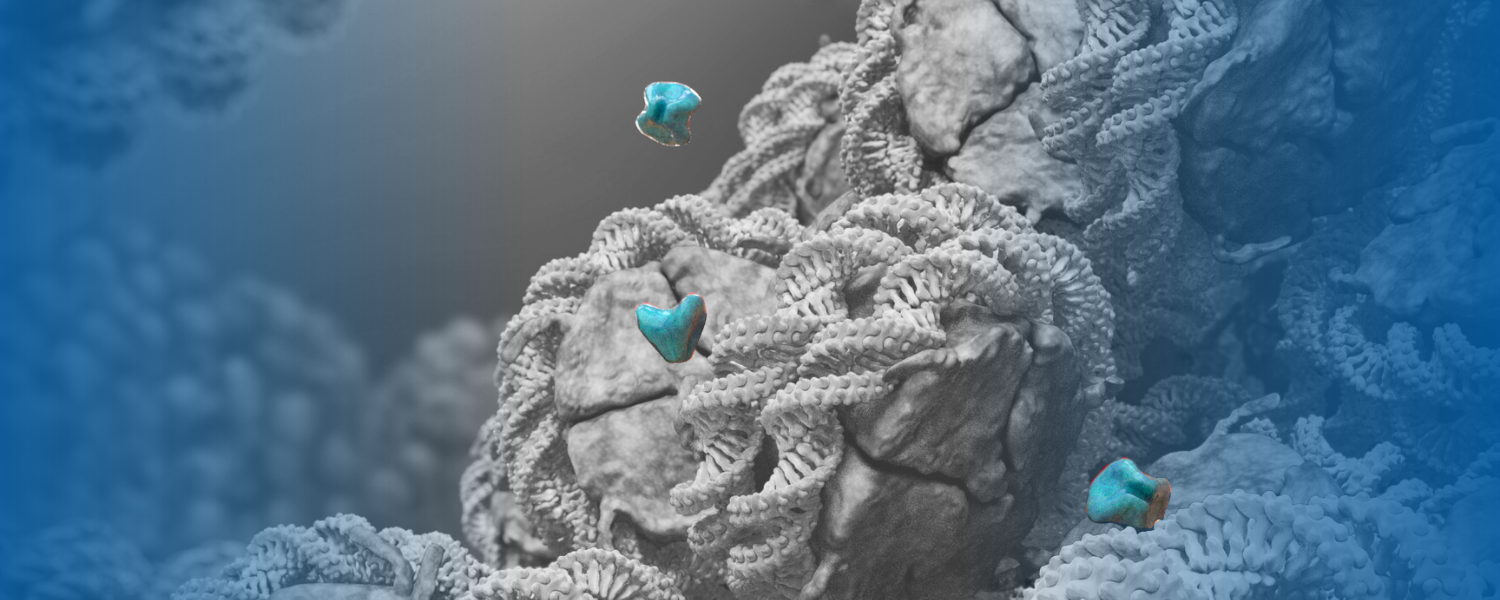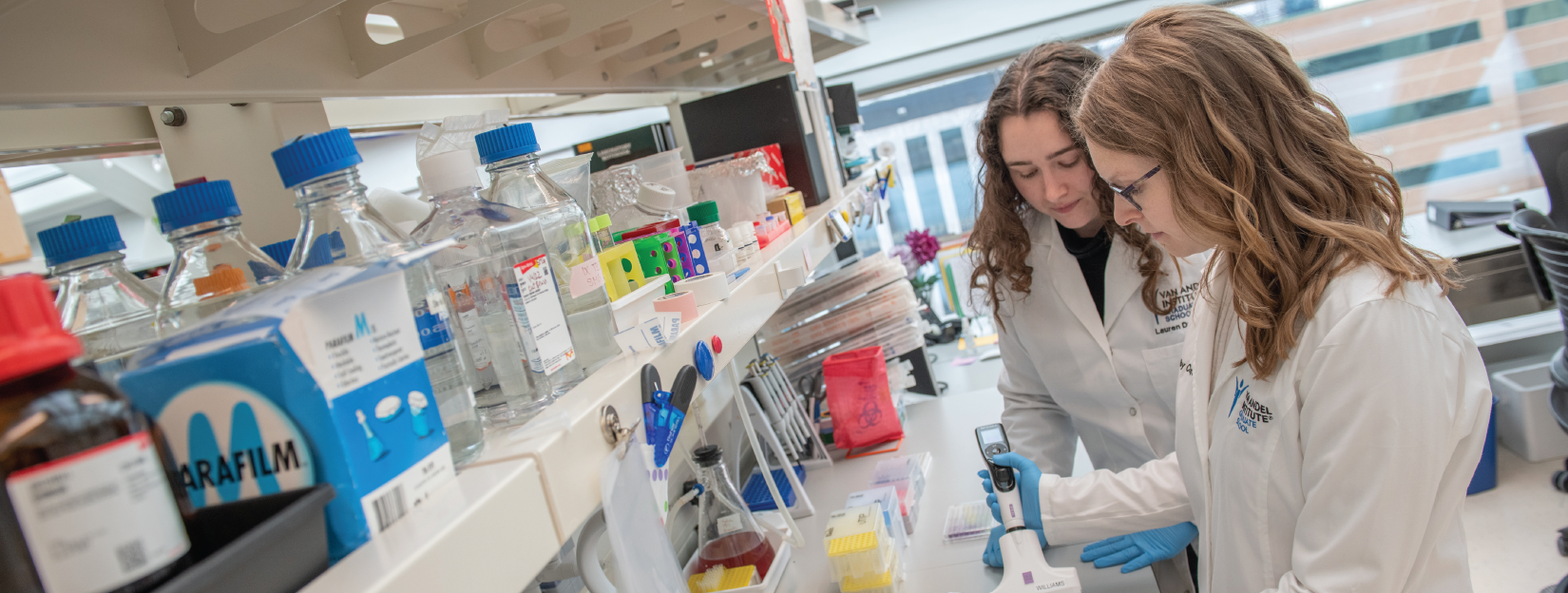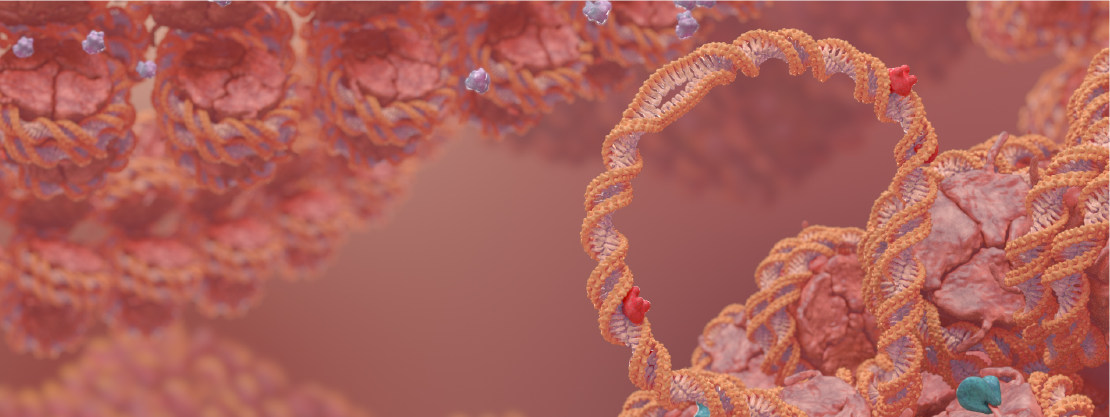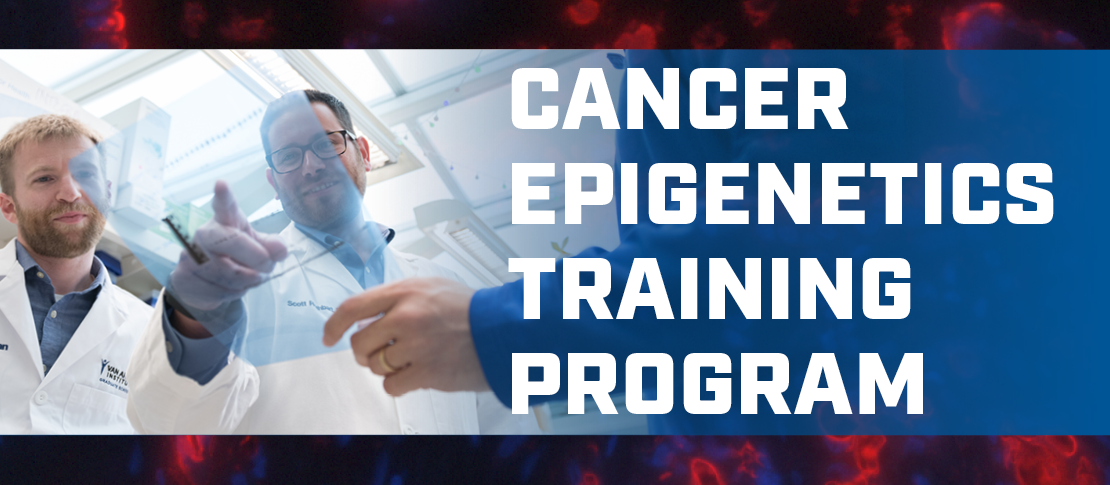Research
12 results.
Cancer cells are masters of disguise.
Like villains in bad movies, they evade detection by masquerading as healthy cells, turning off the body’s built-in alarm…
For scientists like Dr. Scott Rothbart, the same strategies that cancer cells use to survive also are powerful opportunities for developing new treatments.
…GRAND RAPIDS, Mich. (March 27, 2024) — A pair of medications that make malignant cells act as if they have a virus could hold new promise for…
GRAND RAPIDS, Mich. (July 28, 2023) — A metabolic by-product that is more prevalent during fasting may supercharge immune cells as they fight infection and…
GRAND RAPIDS, Mich. (May 11, 2023) — Van Andel Institute scientists have pinpointed how a specific gene mutation triggers an inflammatory cascade that may…
GRAND RAPIDS, Mich. (Oct. 20, 2021) — Van Andel Institute’s Scott Rothbart, Ph.D., has earned a four-year, $792,000 Research…
Estimated at $12.4 million, this five-year grant supports a nationwide team of researchers investigating epigenetic therapies for cancer The Coriell Institute for Medical Research and…
GRAND RAPIDS, Mich. (Aug. 18, 2021) — The National Cancer Institute has awarded Van Andel Institute a five-year, $1.7 million grant to establish a…








